'Idol' is not a dirty word. Unless your Bias plays Guitar . . .
| If you have ever gotten defensive because someone calls your bias an Idol, you are not alone. You are, however, wrong. Almost all of us do it, on some level. And as a whole, our culture categorizes boy bands and girl groups on a different plane of musicianship than rockstars and solo singers, even EDM DJs. Our culture thinks of them as being different species of music makers, we look down on Idols and up to Bands and defensively refer to our bias-groups as 'artists'. But should we? The answer to that is a resounding NO. |
| The general consensus I've gathered from polling my tumblr followers, internet friends, and various other people (many of whom simply did not care at all until I purposely called their favorite group of musicians in a 'Band' by the wrong term), Idols are not musicians in the same way that band members are. Involvement in the artistry, and personal participation in the creative content, seems to be the clincher. The ability to play an instrument comes up in these discussions as well. Personally, I have never understood these claims. In a 5-member band, odds are that only one or two of the members really writes the music, the vocalist probably writes the lyrics, and then the Management & Production teams come in to polish it up, make the recording work, decide the final promotional details (like the final tracklisting & order), and make it into a release that will sell and serve to forward everyone's careers. This happens in ALL music companies, not just kpop, not just idol music, ALL music. And beyond the fact that endless meetings and supervision and reworking goes into EVERY SINGLE MUSICAL RELEASE promoted by any company big enough to warrant talking about, the moment anyone adds to the song, be it by a single change in the words or by re-writing the entirely of the melody, they get an equal share of the credit for creating it. Also, this credit only goes to the creators of the melody and lyrics; the guy that came up with the great harmonics? he gets squat. The lead guitarist who writes an epic intro-solo? Yeah, he gets a great big pile of nothing for his trouble. The poor little tech girl who spends hour and hours hashing out the panning and making a track swirl around the listener like it's giving them a hug? Yeah, nada. (I got paid with a can of Pillsbury Icing once . . . Not even kidding). Also, is the ability to create music really the only form of artistry that matters in music? What about the ability to perform it? If I'm am epic songwriter that pumps out lyrics that could make the Queen of England smile, shouldn't that count for something? Shouldn't that count even if my singing voice is most reminiscent of the sound made a particularly aggressive cat trying to explain that food is being demanded? If I write songs for other people to sing, how does that make the song any less impressive? And if I write it, knowing that I won't be singing it, and make it work to perfectly utilize 6 or 7 or even 15 different voices, shouldn't that be considered an epic accomplishment? And as for the singers: How cool is is if a group of 6 or whathaveyou number of people manage to work with a songwriter to fully encompass every one of their varying vocal skills to their utmost advantage, supporting some members, stretching others, and really pushing the limit of harmonics all while ensuring that the track itself is the peak of excellence? And what about singers that record well, but sound like dying cats live? I love Katy Perry's records, but I'll eat my own foot before paying to see her in concert... But at the same time, I'd rather have Katy Perry's voice on a record than someone who can sing live, but records as smoothely as splinters on an old dock. | It is absolutely impossible to tell how involved an artist is in the creation of their music. Sometimes Bands like to share credit around and say the lead guitarist changed a word so he should get credit when really he just made up a nice lead; that lead may be the only reason anyone likes the song, and that might be why the band thinks he deserves credit, but he'll be credited as a 'songwriter' or a part of the production team. Sometimes artists don't know that they can claim creation-credit for changing a word and therefore never even try to fight for their share. And sometimes companies just outright lie: if an artist is epic but completely new to the music scene, they'll sometimes tack on an experienced name to the production team so that there's an experienced hand 'involved' to the eyes of potential-customer-pool. Again, this goes for EVERY music company, regardless of the sort of music they promote and be they based in Seoul, London, LA, or anywhere else. Besides those aspects, having artists work with various songwriters actually makes for BETTER music in the long run. Songwriters are people. People only live so long, and therefore can only have so much to say. Young songwriters are at a special disadvantage in terms of finding something new and wonderful to say, or at least in finding something not horrifically cliche. And yet, we like our musicians young and pretty, so when kids start bands we're all gung-ho. But then those kids end up in the guiding hands of a production team who writes their music for them and boom they're suddenly not worth our time anymore. I personally would much rather have good music given to bands while I watch them learn and grow than I like to have inexperienced musicians pump out songs like their own personal diary with the same simple themes repeated ad nauseam. I don't believe that acknowledging inexperience or a personal lack of skill should be considered a weakness. I think it's a show of great wisdom that should be admired (maybe not in the same way as the ability to both write and sing, but still the point stands). |
| Why is Beyonce an incredible feat of musical majesty, but Destiny's Child was a girl group fad? The only thing that really changed was that they all grew up, matured, and Beyonce was able to take the reins she'd been carefully tutored to control. If the baby-Beyonce, from her debut with Girls' Tyme, had tried to be the solo superstar of her Single Ladies video, she'd have fallen on her face and drowned in the sea of other options the American audience had to listen to. Regardless of any trespasses her company made (since it's a unicorn of a company that doesn't do the same), it's not that she didn't have control of the projects Destiny's Child did, nor is it that her greatness was stifled by being in a girl group. What has made her successful, powerful, and fully capable of being Beyonce is just that the awkward little girl with talent grew up. And that she had training with Destiny's Child, that she'd had the opportunity to learn about the industry and how it works to prepare her for the fights she would face in going solo. |
| | Idol should not be an Insult. There's no reason in the world to consider the idea of being an Idol of any lesser value than being a band member. Especially in Kpop. Many Kpop Idols play instruments, though rarely are their talents showcased in their music, save for short intro scenes of them at a piano. These secret skills that earn would them significant musician-cred are kept to promotions on variety shows or acoustic concerts or special releases... Of course, 'Idol Bands' like C.N.Blue and FT Island throw up a unique challenge to that assertion. According to their companies, they are Idols. They have been independently contracted as musical talents, they've been given extensive vocal training, their looks are overwhelmingly crucial to their success, they use synths in their music, and can only paly certain variations of their songs without support or MR, and they are not the sole creators of their music; it seems to me that they're Idols. "But they play instruments! They're a band!" is not an acceptable response in my book. Nor would "oh, they're just Idol" be an acceptable dismissal of any group that does not play instruments onstage in their promotional tracks. The ability to play and the decision to do so in a promotional track are entirely unrelated. |
| The only other Idol vs Band factor I can think of is the Training aspect. You can't possibly think less of musician for receiving coaching and vocal lessons and such once they become stars (if you're of the opinion that by nature of being a star onstage they no longer need to learn, you should really just shut up before you embarrass yourself), so the only option has to be the Idol Rookie Pre-Debut Training System. Most people evaluate bands as entities that formed on their own, honed their own skills and debuted as a self-created group. In Japan this is largely still true, but it's also much less true than in the US, as companies will contract with partial groups and play matchmaker to fill in the missing members, or even simply supply support members. These sorts of bands debut on minor labels, gain experience, get coaching and intensive music lessons, and work their way up to super-stardom. They start out imperfect and grow into their fame as it expands around them. It's a fairly solid system and it definitely delineates Bands from Idols in a way that none of the other supposed factors do. This is how I personally define the distinction between Band and Idol, both of which are artists that are incredibly impressive on a level that should earn them nothing but respect. | Bands are allowed to be less-than-perfect when they debut. Idols are not. The Idol-Trainee-System has a unique way of acquiring and shaping talent: generalized auditions. If a kid that wants to work in music can show that they have natural skills, an ability to learn quickly, and an insane amount of work ethic, they can be swooped up into massive training programs designed to beat them into super-star shape. These training programs, like SM Academy, are the main force behind the success of the Kpop industry. They're overly harsh and have dozens of their own problems, but the root of the matter lies in the fact that when Idols successfully graduate from the academies and debut, they are Professionals. They are very bit as capable and worthy of being on stage as the veterans they perform alongside for music shows. Sure, they're a little rougher around the edges, they can be picked out of a line up as being rookies, but they're still on a level far above the average kid. There really is no learning curve: if a band debuts at a level that's less than perfect, they are simply cast aside and a different, more capable, rookie group takes their place in the spotlight. |
| Besides, in my book, music is music, no matter how many hands it passes through before it hits my headphones. I just think that if a song is really great, if it gives you shivers, makes you cry, if your heart pounds to the beat and your head buzzes in a giddy high, isn't that just awesome? Isn't that something to be happy about regardless of the music's category? Most of us have already gotten over the idea that just because it's rock music or rap music or whatever music it's not as good as a different genre, so why can't we do the same with the categories the bands themselves are in? Kpop Idols, more than most, are incredibly impressive. They're musicians, that often play multiple instruments, sing, dance, write, produce, perform, and promote music in various styles and with various levels of personal involvement; they often help members of other bands, and take on various acting roles from their own incredible Music Videos (dreamed up by directors with vision and experience that young musicians could only dream of), stage productions, to TV dramas, to commercial films; they're models in advertisements,and they do all of it while actively getting a normal student's education. In the US, it's unheard of for singers to perform 3-4 times a week, every week, for months on end. Sure the US has big tours and concerts and such, but so does Korea, and Kpop Idols have to be able to perform at peak for them, in addition to everything else they're expected to do. And they have to do it from the moment they debut in the music world, and do it well or be forgotten. In short, I don't believe that 'Idol' is bad word to call anyone in music, and in Kpop, I think it should be worn proudly like a Badge of Honor; that Idols should be respected for their talents & battle scars. |
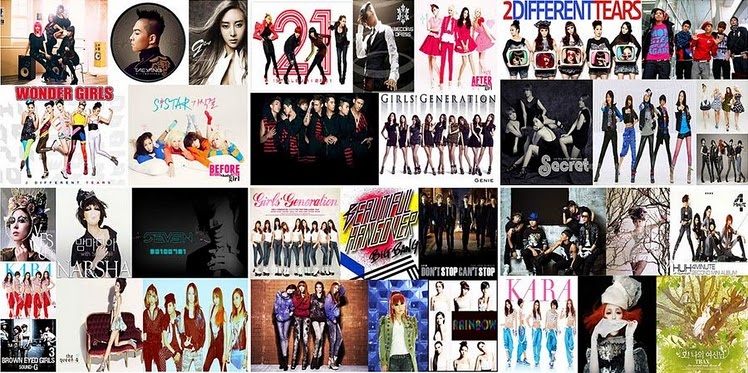
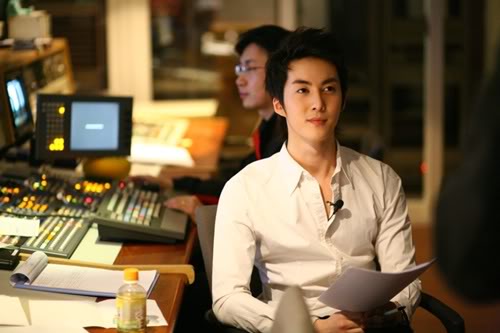






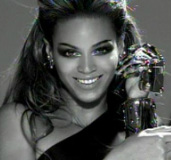



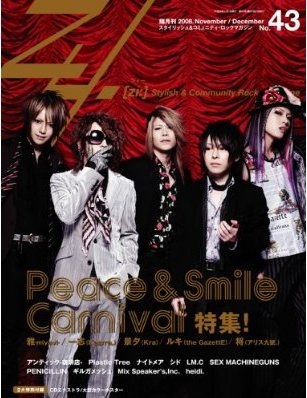



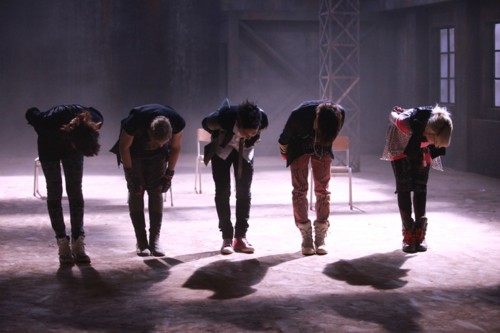



 RSS Feed
RSS Feed
